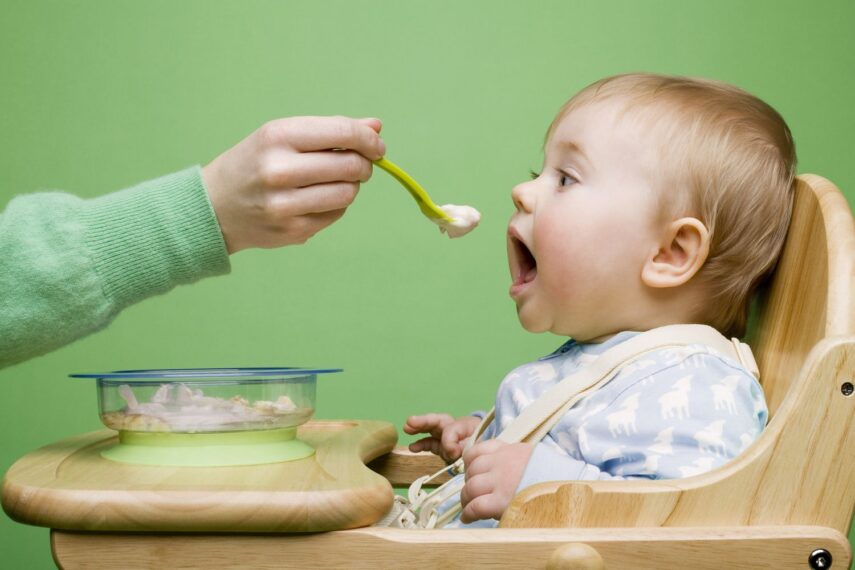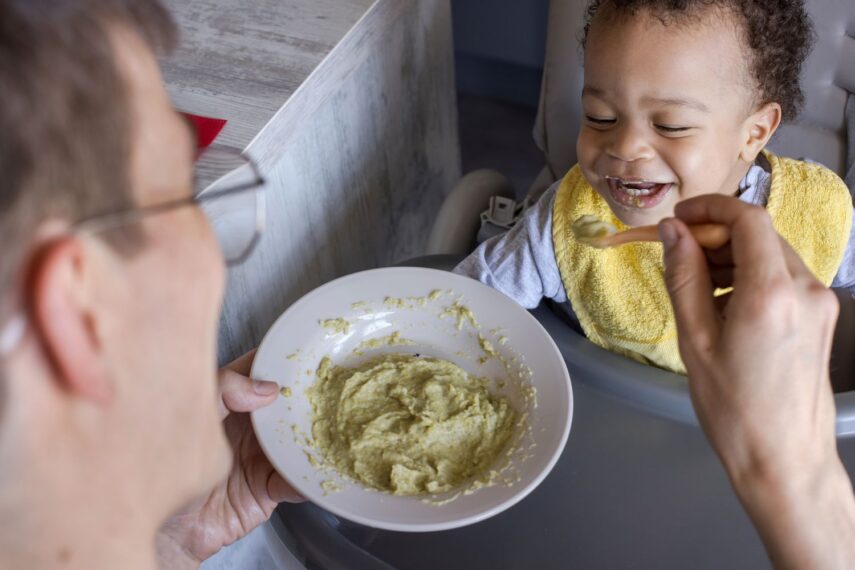You must lay a good health foundation in the first few years of your baby by preparing age-appropriate foods that will boost their growth and keep them strong. But sometimes, there are so many baby foods in the market that it can be overwhelming when deciding what to purchase. It can also be confusing to determine when it’s best to start giving solid food to your little one. This article will discuss tips on planning your child’s diet from milk to when they’re ready to move on to more substantial foods.
Milk Feeding for Newborns

From when they are born to five months old, your baby will get all its nutrients from breast milk or formula. Babies are different, and some will eat more than others. The older babies get, the longer they can do without eating. That’s also why increasing feedings by one ounce monthly is appropriate.
Give your newborn two to three ounces every two to three hours. Increase to three to four ounces every two to four hours. Keep increasing the amounts gradually until your baby reaches five months old. Give them six to seven ounces of milk every four to five hours daily.
Starting Solid Foods at Six Months Old

While your baby is still feeding on breastmilk or infant formula, it’s best to begin planning because they will need more energy and nutrients to support growth and development once they reach six months old. That’s the right time to introduce them to solid foods.
By six months, your baby can have milk and mashed vegetables and fruits like apples, potatoes, yams, carrots, or pears. You can make purees at home or source trusted commercial purees similar to Serenity Kids products. Rice mixed with milk is an excellent choice to help them get used to solid food textures.
Spot Food Sensitivity
Six months old is also an excellent time to introduce your child to allergy-causing foods in small amounts. You need to pinpoint which foods to avoid in the future by spotting allergic reactions now. You can give your baby cow’s milk (if your baby only suckles breast milk), sesame, peanuts, wheat, fish, and other seafood.
Introduce only one variety of allergy-causing food per meal to identify which caused the reaction easily. Monitor your baby closely and bring them to the pediatrician once you spot abnormal symptoms. But if they do not react to the food, let their bodies become accustomed to it by letting them have it twice a week. They may develop food allergies if they suddenly stop eating what they have.
Eating at Six to Twelve Months

During this time, you can help your baby practice eating by allowing them a place at the table surrounded by the family because they can learn from the people around them. You must address their daily dietary needs in this period because it’s when they need more energy, vitamins, and minerals compared with adults. They need proper food to support their growth and development.
Here are the following nutrients and foods that you should introduce to your child:
Iron
Iron is vital for the creation of hemoglobin as it carries oxygen to the different parts of the body and is vital to the neurological development of infants. The nutrient is primarily found in red meat but is also abundant in dark leafy vegetables like spinach, broccoli, and silver beet. Iron is also in different kinds of beans like kidney and pinto. You can also give your child iron-fortified cereals.
Zinc
Zinc supports immune function, wound healing, and babies’ development of smell and taste. They can get zinc from dairy, grains, meats, fish (flounder), legumes like beans, and shellfish (oyster or crab).
Vitamin A
Vitamin A also supports a healthy immune function, keeps the skin healthy, and strengthens the functioning of the eyes in dim lighting. Give your baby mangoes, carrots, sweet potatoes, spinach, cabbage, broccoli, and dairy to get vitamin A. Cooked dried foods can be introduced to your child like apricots, figs and dates.
Vitamin D
Sunlight is a significant source of vitamin D, and a healthy amount of sunshine from six to seven in the morning for around thirty minutes is suitable for your child. It’s essential for strong bone development and to prevent rickets. They can get this vitamin from salmon, tuna, beef liver, egg yolk, sardines, cod liver oil, and more.
Vitamin C
Vitamin C supports iron absorption and is vital to general health and immune functioning. Your baby can get them from strawberries, tomatoes, oranges, kiwis, pepper, and broccoli.
At this age, your baby doesn’t need sugar and salt added to their foods because of what they can do to the kidneys and early tooth decay. You also need to be patient when giving different foods to your baby, as they’ll take time to get used to different textures and flavors.
Preparing Meals for 12 Months Old to Toddlers

When your child reaches toddler age, they are growing rapidly and need enough nutrients to support this stage of their lives. Your child keeps developing and self-feeding using their hands and, later on, using utensils.
Your toddlers’ daily dietary needs consist of different practical foods that can give them the following:
- Calories (1000)
- Calcium (700 mg)
- Iron (7 mg)
- Vitamin D (600 UI)
Give your child oatmeal, bananas, yogurt, eggs, whole-grain pancakes, tofu, avocado, chicken or turkey, steamed carrots and broccoli, humus, and mashed potatoes. Get them in the habit of drinking water to hydrate. Toddlers must have an eight-ounce glass of water and should be urinating every six hours.
You can also provide your child with commercial food products sans preservatives. There are many in the market today. In particular, when you shop for purees, go for those with natural ingredients.
Takeaway

You can plan for your baby’s diet by considering what foods they can have according to their age groups and how much they can have. Babies are fed breast and formula milk from birth up to five months. You must increase the amount of milk by one ounce per month.
At six months, your child can begin to eat solid foods with milk because they are growing fast and need nutrients. They can start with pureed fruits and vegetables and allergy-causing foods in small amounts to help prevent allergies in the future.
When they are six to twelve months old, they will require iron; vitamins A, D, and C; and zinc to support their immune system, keep their skin healthy, and more. When they reach toddler age, their diet can resemble yours.







